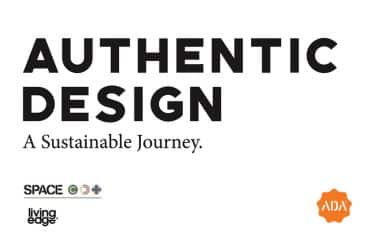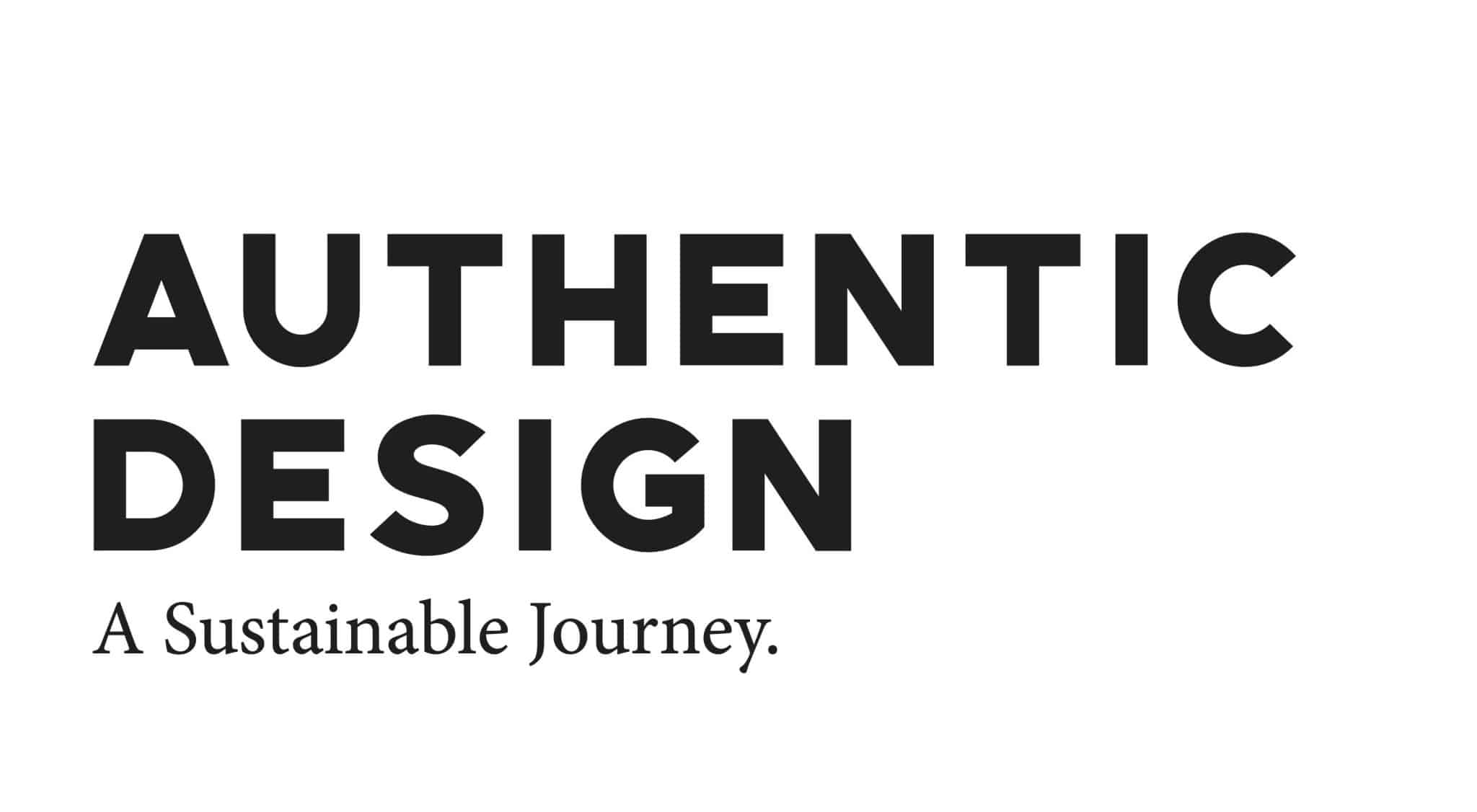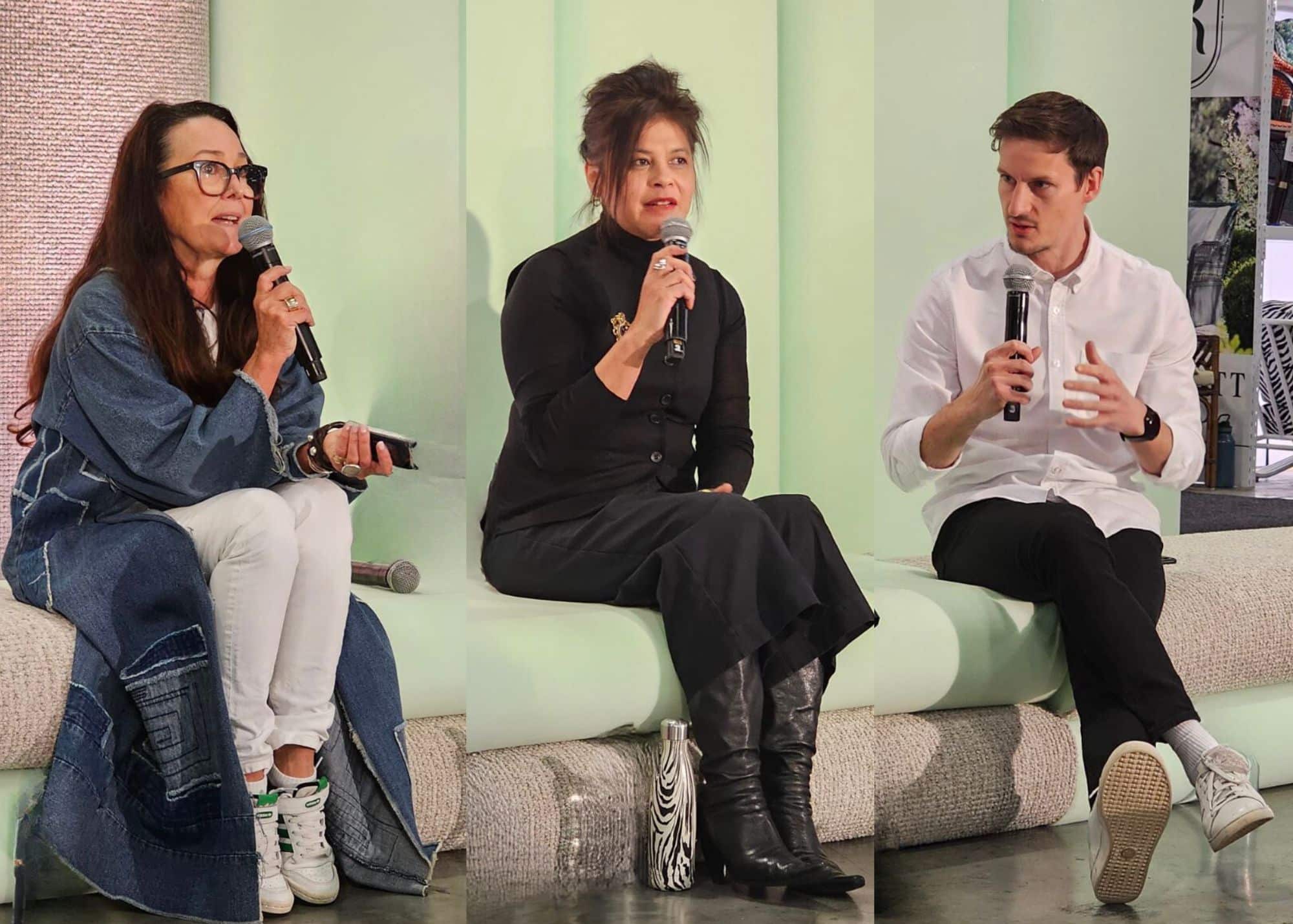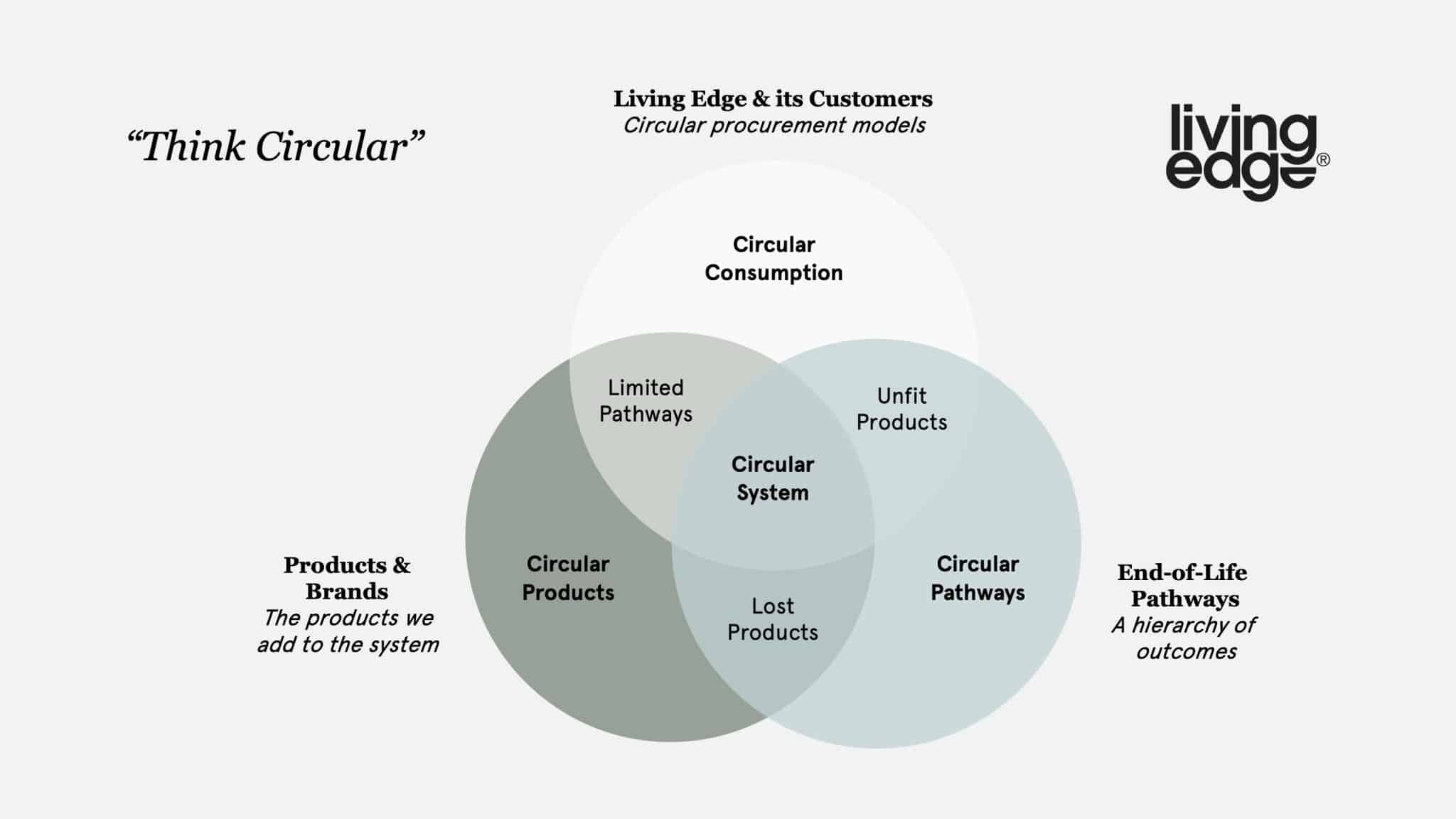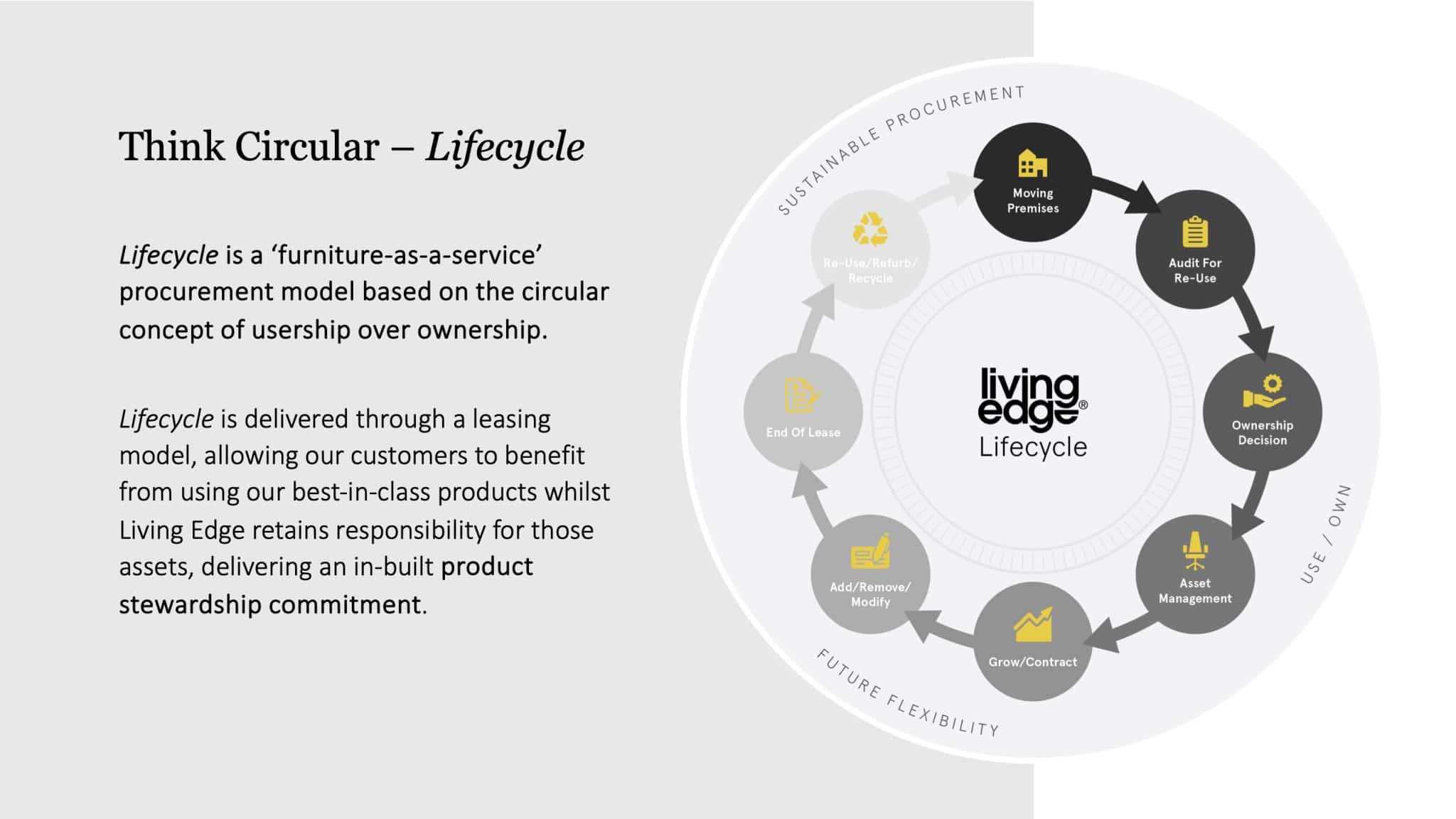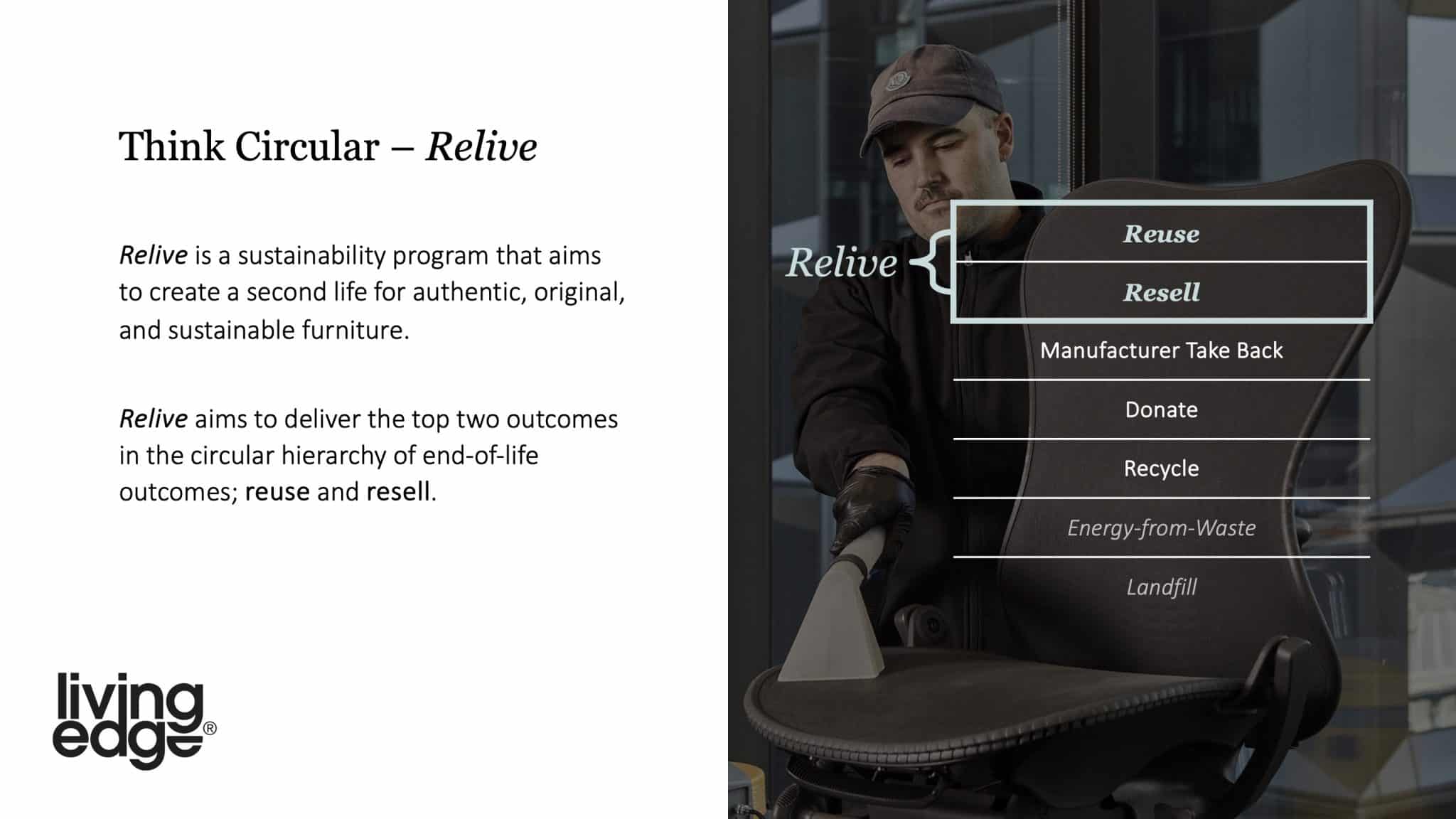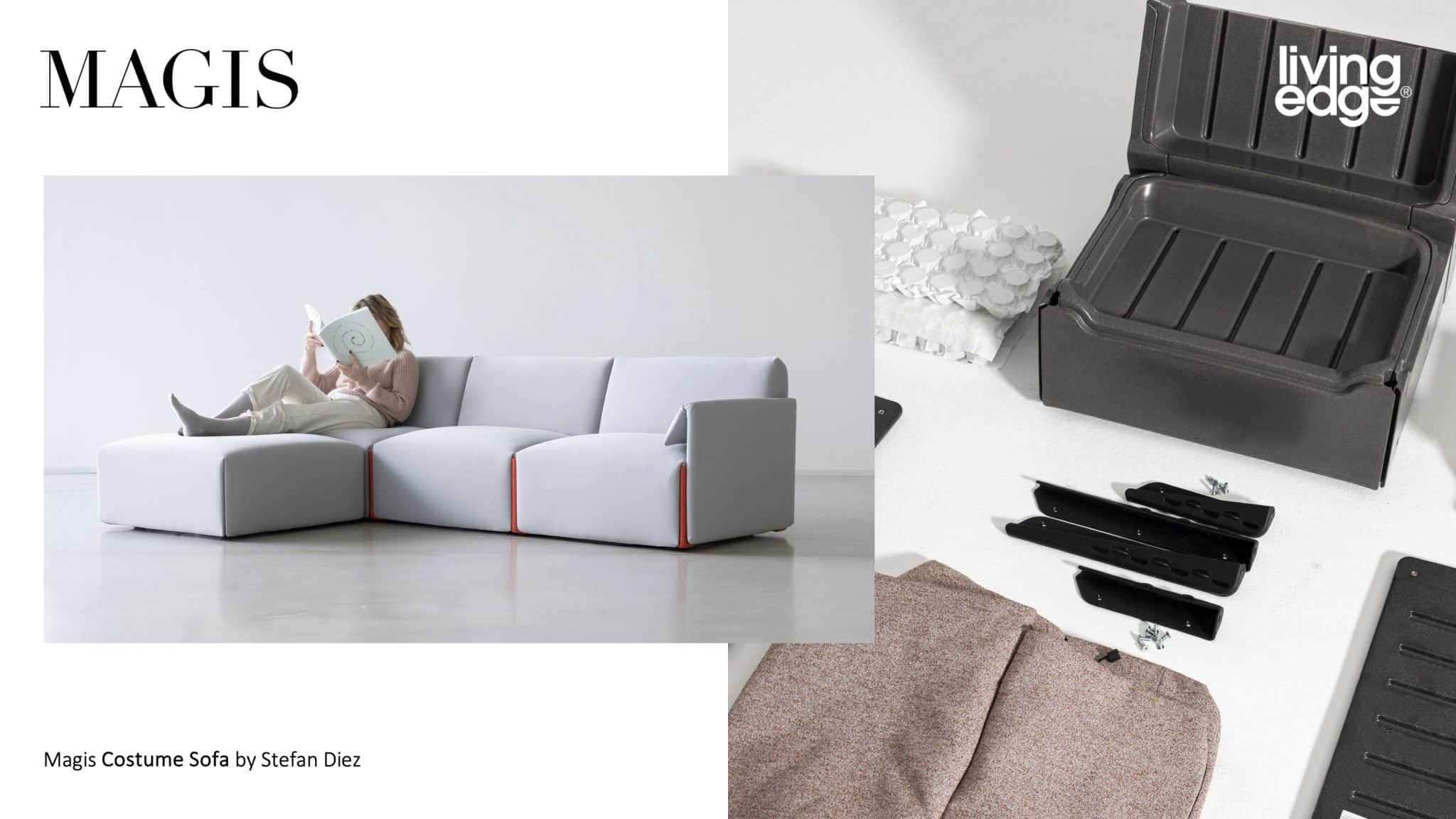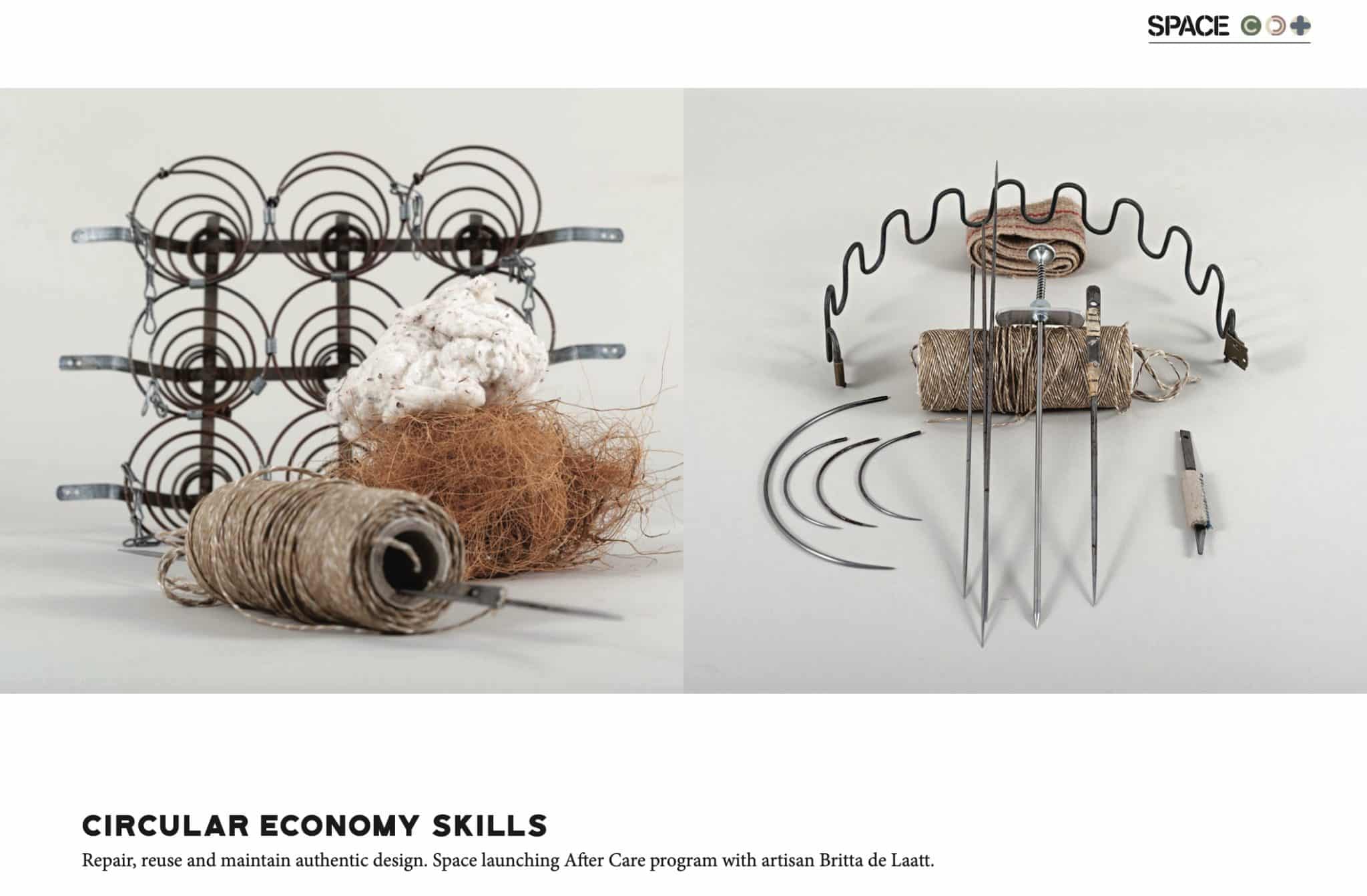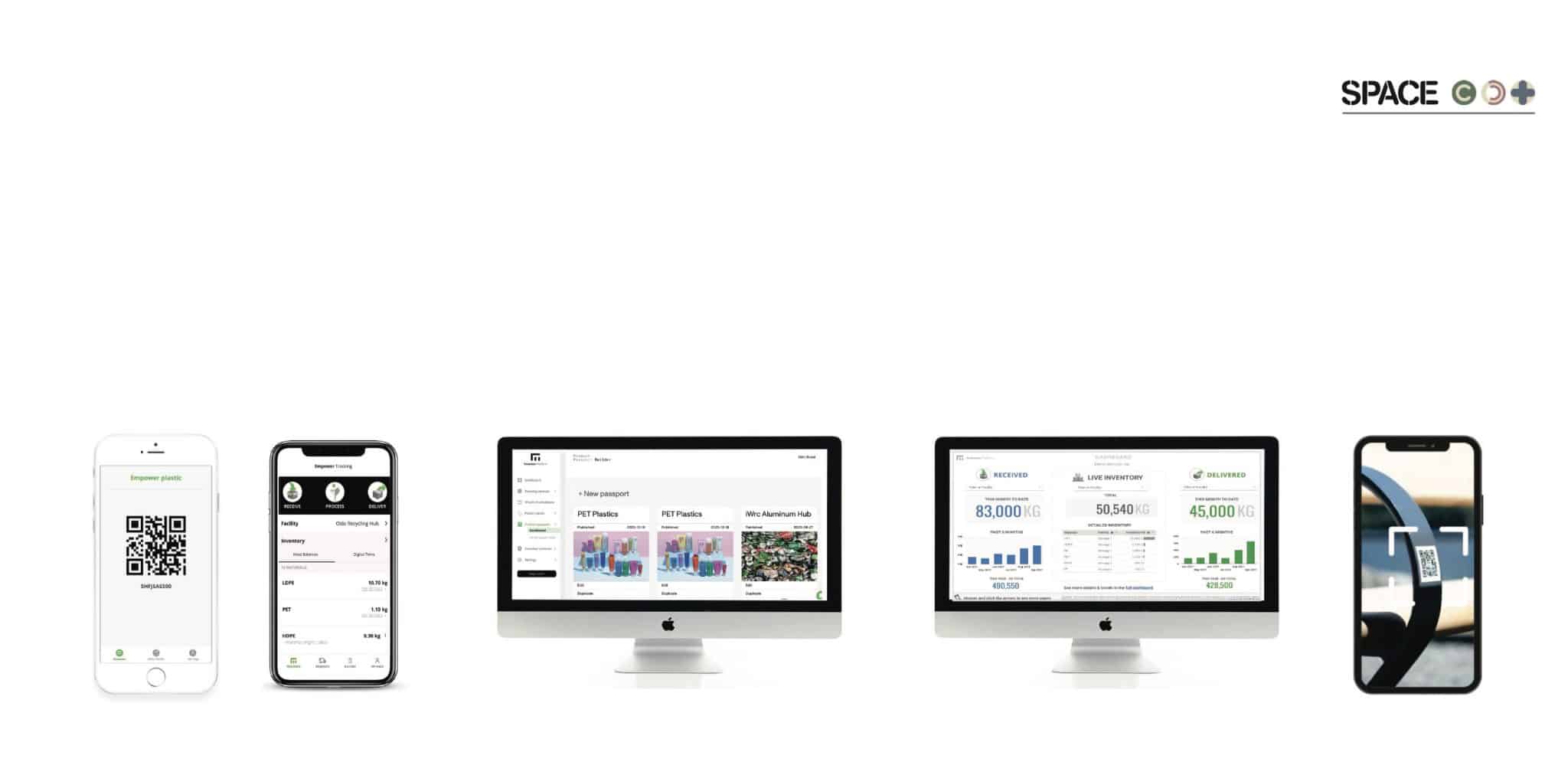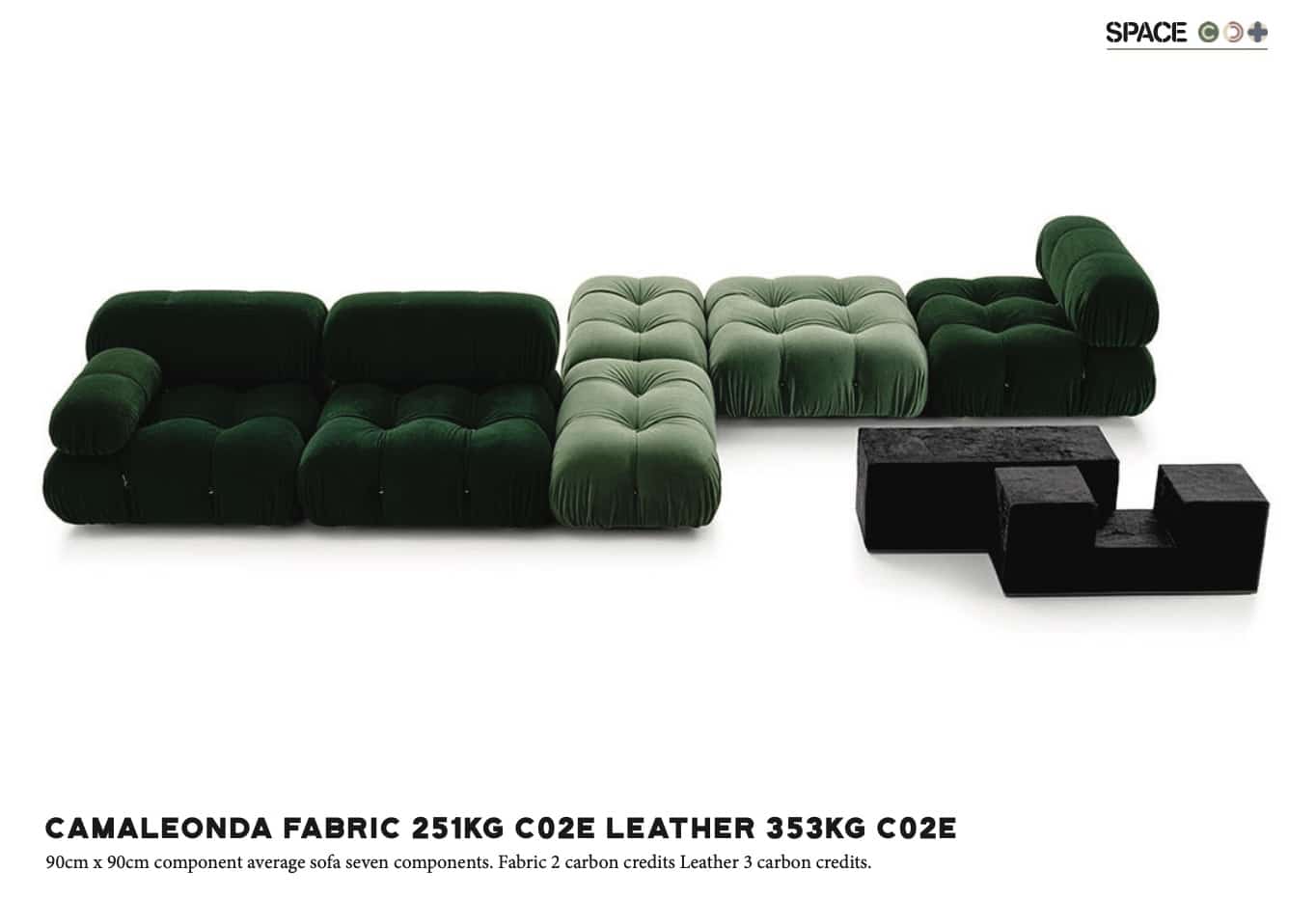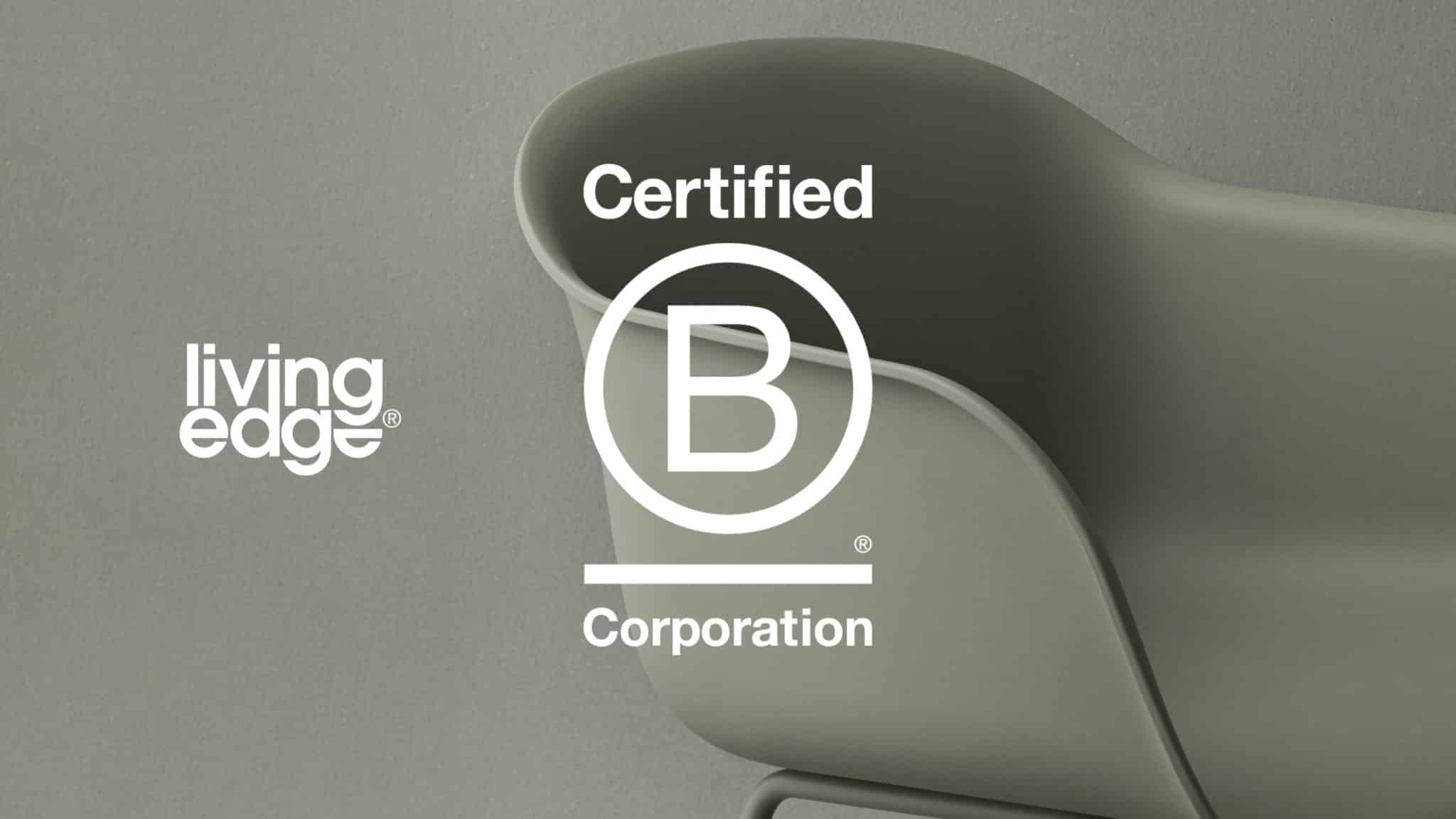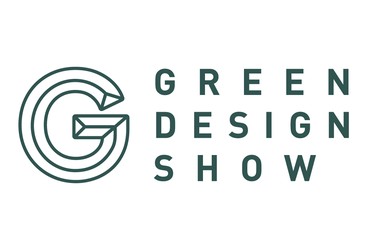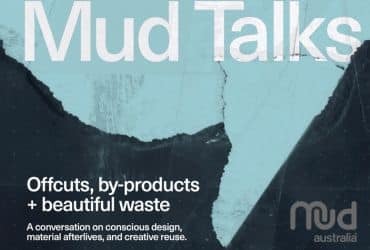Talk summary: read the points from our talk ‘Championing Sustainable and Authentic Design: What can we do?’ presented by the ADA for Design Show Australia.
The discussion provided valuable insights into the challenges and solutions to promoting eco-friendly furniture and lighting design practices, emphasising the importance of thoughtful actions, education, and collaboration in safeguarding our planet.
In a world where fast consumption and disposable culture have become the norm, the debut talk in the ADA-led sustainability series delivered refreshing and crucial dialogue on the future of eco-friendly and authentic design in the furniture industry.
Hosted by Anne-Maree Sargeant (AMS) of the Authentic Design Alliance (ADA), the panel brings together industry experts Karie Soehadi from Circular Design Thinking on behalf of Space Furniture and Living Edge sustainability strategist Guy Walsh – to discuss the challenges and solutions to unpack circular practice and explain why authentic design products are the most sustainable solution.
Understanding Sustainability and Authenticity
The conversation kicked off with AMS underscoring the ADA’s mission to combat the growing issue of replica furniture and dupes and the importance of promoting sustainable design through this first talk in a new ADA education series.
Guy highlighted the importance of slowing down consumption and making mindful choices. At the same time, Karie delved into the lifecycle of materials, stressing that 80% of environmental issues can be addressed at the design concept stage.
The Path to a Circular Economy
Much of the talk focused on case studies of how brands like Living Edge and Space embed circular economy principles within their business models.
Guy shared the Living Edge ReLive program, which promotes product reuse and lifecycle management.
He explained the Living Edge practice of ‘furniture as a service’, where users lease rather than own furniture, which works to extend a product’s life and reduce waste. Within this program, Living Edge retains ownership of the products, enabling full control over product stewardship.
Karie shared insights on how Circular Design Thinking guides companies towards sustainability, emphasising that the journey to a circular economy is gradual and requires a commitment to future-focused design.
She explained how Space Furniture has spent more than three years planning to minimise its carbon footprint through initiatives such as batching shipments and choosing materials with lower emissions, such as fabric over leather.
Innovative Eco-Friendly Designs
The conversation highlighted groundbreaking solutions in eco-friendly design.
Guy then introduced innovative products like Patricia Urquiola’s ‘Alemandre’ pendant light for Flos, designed for disassembly to enable ease of repair and end-of-life recycling. Similarly, Magis’s ‘Costume’ modular sofa by Stefan Diez has 4 mm from recycled and recyclable polyethene. It is designed for easy disassembly, including easy-to-remove upholstery fixed into space by loops.
These products exemplify the industry’s move towards creating sustainable and adaptable designs as part of the original design brief.
Material Transparency and Environmental Impact
A key takeaway from the talk was the importance of material transparency. Karie introduced the notion of ‘Product Passports’ as a mechanism to provide material transparency and reduce environmental impact.
By scanning a QR tag, end-users can instantly identify the impact of individual products’ materials, manufacturing, transport, and more.
AMS noted that brands make significant investments to implement these initiatives, which consumers should understand is another reason to respect distributors of authentic products and brands.
This has a price implication—something the consumer is investing in.
She emphasised the need for consumers to ask more questions about products’ origins to understand their environmental impact, advocating for a more informed and conscious approach to consumption.
Guy gave case studies based on the Herman Miller experience, encouraging a new mindset focusing on value (impact and longevity) rather than the cost of products.
We need to prioritise VALUE over cost and understand the real meaning of value and value longevity.
The conversation also touched on the evolving nature of sustainability practices and the impending requirement for companies in Australia to report on their Environmental, Social, and Governance (ESG) metrics.
This shift is expected to prioritise sustainability over pricing, encouraging companies to adopt more eco-friendly practices.
The EU requires businesses to be accountable for their environmental impact, and similar metrics will be mandated in Australia shortly.
Being mindful of these impending changes, we must join the conversation, become informed, and adjust our business models accordingly.
Moving towards B Corp Certification
The panel then shared an understanding of becoming B Corp Certified, an externally measured series of metrics that assesses the impact on People, Place, Environment and legacy.
B Corp Certification indicates that a business meets high standards of verified performance, accountability, and transparency on factors from employee benefits and charitable giving to supply chain practices and input materials. To achieve certification, a company must:
- Demonstrate high social and environmental performance by achieving a B Impact Assessment score of 80 or above and passing our risk review. Multinational corporations must also meet baseline requirement standards.
- Make a legal commitment by changing their corporate governance structure to be accountable to all stakeholders, not just shareholders, and achieve benefit corporation status if available in their jurisdiction.
- Exhibit transparency by publicly making information about their performance measured against B Lab’s standards available on their B Corp profile on B Lab’s website.
Collaborative Efforts and Future Initiatives
We concluded with a call to action for more support from the ADA’s members and partners in understanding and promoting the need for circular thinking.
It highlighted the collaborative efforts in promoting sustainable and authentic design practices, with upcoming ADA-led events throughout the year to discuss the various facets of authentic design and sustainability. across different cities.
Who is this for?
Anyone passionate about creating a more sustainable and authentic future in the furnishing and interiors sector.
designers, makers, manufacturers, importers, distributors, retailers, architects and interior designers, building industry professionals, students, and the design-loving public
Sign up for future Sessions :
Pre-release list //Remember to tell us which events interest you, or contact us via the form below.

